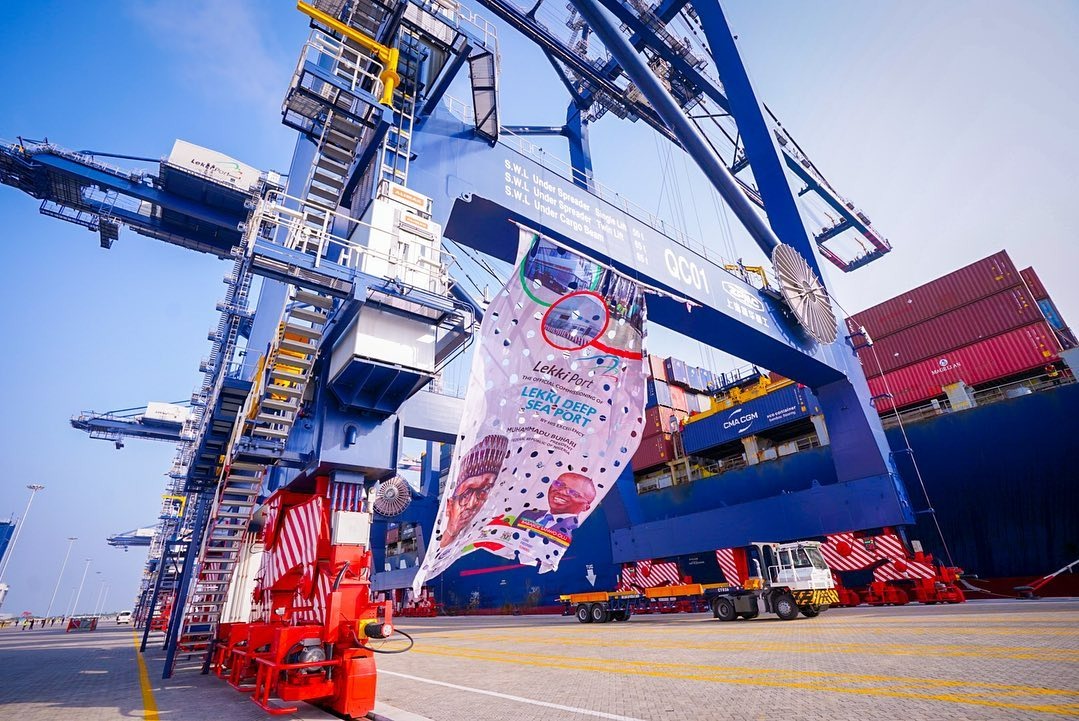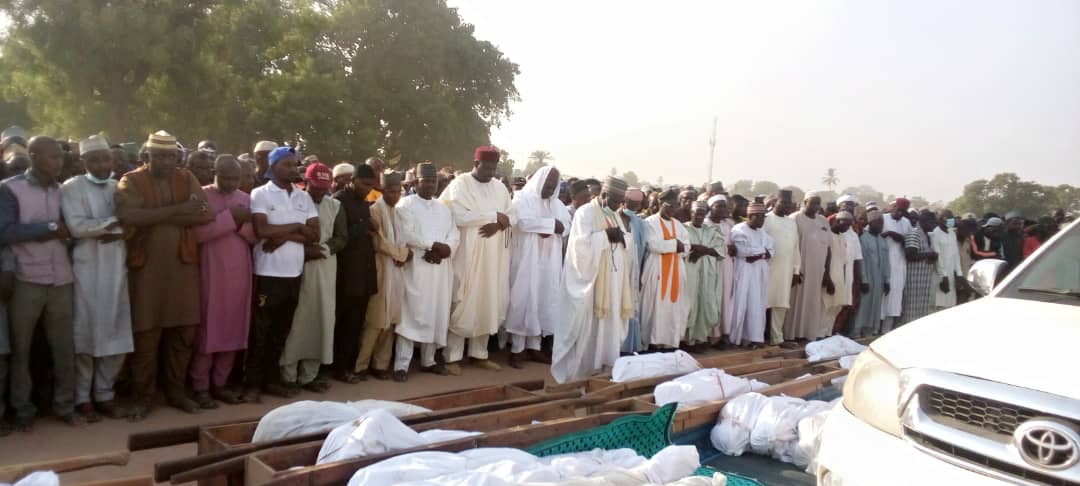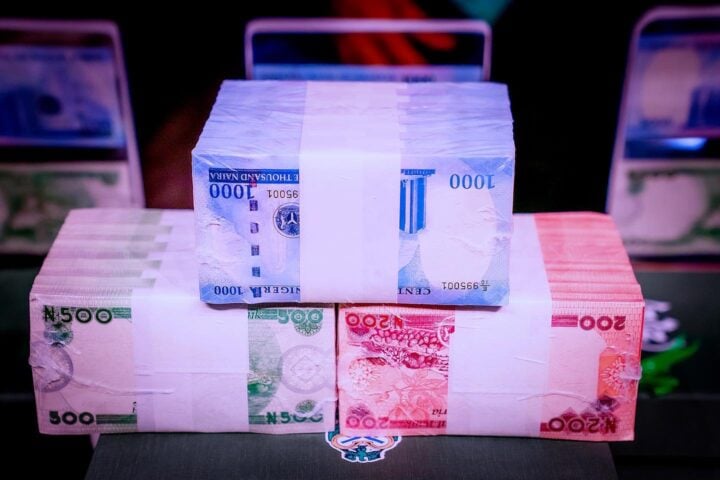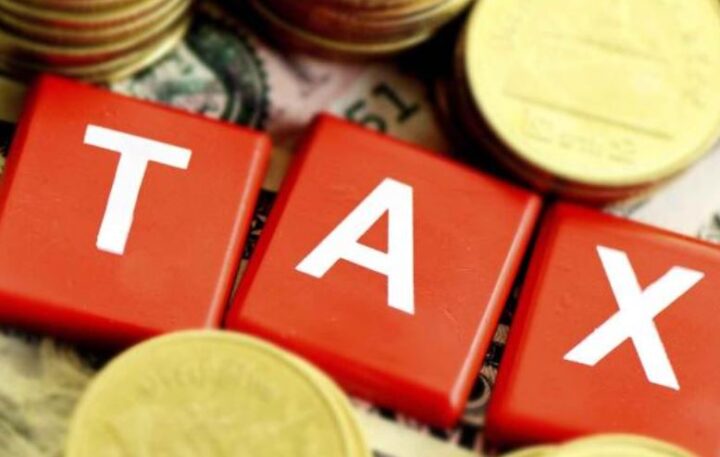On Monday, January 23, 2023, the Lekki deep seaport was inaugurated by President Muhammadu Buhari after its completion late last year.
This seaport, said to be the deepest in sub-Saharan Africa, would serve as a trans-shipment hub for the region.
The project is the result of a 45-year concession awarded to Lekki Port LFTZ Enterprise Limited (LPLEL) by the Nigerian Ports Authority (NPA) on a build, own, operate, and transfer (BOOT) basis.
Under the agreement, the company is required to develop, finance, build, operate, and at the end of the concession term, transfer the port to the NPA.
Advertisement
The port, constructed by China Harbour Engineering Company Limited (CHEC), occupies 90 hectares out of the entire 830 hectares of land reserved for the Lagos Free Zone (LFZ).
Analysts believe the infrastructure would transform the West African maritime landscape. Most importantly, it is expected that the project, though sited in Lagos, would have a positive impact on the nation’s economy in many ways.
REDUCE NIGERIA’S UNEMPLOYMENT RATE
Advertisement
Last Friday, the Nigerian Economic Summit Group (NESG) said the country’s unemployment rate may rise to 37 percent this year.
The projected rate is almost 4 percent higher than the National Bureau of Statistics (NBS) unemployment rate of 33.3 percent as at the fourth quarter (Q4) 2020.
According to the think-tank group, this amplified rate would be due to “weak performance in the job-elastic sectors, low labour absorption of sectors that will drive growth, and population growth estimated at 3.2 percent will lead to a decline in real per capita income”.
The Lekki deep seaport, built to handle 18,000 TEU capacity vessels, is expected to bridge Nigeria’s unemployment gap with provision of over a 100,000 jobs.
Advertisement
“The benefits for Lagos state are tremendous: 200,000 direct and indirect jobs will be created, in addition to billions of dollars in taxes and revenues, ” said Babajide Sanwo-Olu, Lagos governor.
He added that the seaport’s vessel capacity is four times bigger than the ones berthing at Apapa seaports, thereby reducing the cost of container transportation from any part of the world.
INCREASED GROSS DOMESTIC PRODUCT (GDP)
The new year opened with ‘apocalyptic’ predictions for Nigeria’s economy. Multilateral organisations like the World Bank expect growth to slide to 2.9 percent, adding that a sharp, long-lasting slowdown is expected to hit developing countries hard this year as the global economy weakens.
Advertisement
The Nigerian-British Chamber of Commerce (NBCC) agrees too, projecting a 2.7 percent slowdown in economic activities in 2023.
While these projections are premised on obvious economic indicators such as (but not limited to) the recent flooding that wreaked havoc in the nation, the federal government is working to improve the situation and the result of such efforts is the inauguration of the Lekki deep seaport — significant milestone in Nigeria’s history.
Advertisement
Last year, Rotimi Amaechi, former minister of transportation, said the deep seaport would contribute $360 billion to Nigeria’s GDP. It would also drive the government’s revenue generation agenda through taxes at the seaport.
“The project will contribute about $360 billion over the years. It sounds much, but we actually need more of that money to accomplish what we want to achieve,” Amaechi said.
Advertisement
“But obviously, taxes will be collected here and even them (contractors) will pay taxes. I am not sure there were any taxes mentioned in the agreement, but I doubt there is any tax exemption.
“So, we will collect taxes here. The confidence in giving them the project is because of the taxes that we will collect here which will help us in the construction of other projects.”
Advertisement
REVIVING MARITIME BUSINESS IN NIGERIA
TheCable had reported that vehicle importation was ebbing — a bad omen for the country’s maritime sector considering the huge demand for used cars by Nigeria’s middle class.
Multiple sources confirmed that port activities have also reduced as most importers patronise ports in neighbouring countries.
So, beyond the revenue and job creation, the commencement of operations at the Lekki deep seaport will make it possible for Nigeria to take back the maritime business that was lost to ports in Togo, Côte d’Ivoire, and Ghana due to overwhelming redtape.
According to Mohammed Bello Koko, managing director of NPA, the seaport is the first fully automated port in Nigeria.
“For us at the Nigerian Ports Authority the coming on stream of Lekki symbolises a lot of positives. Apart from being Nigeria’s first deep seaport, Lekki port will also be the first fully automated port at take-off…,” he said.
“Automation remains the most veritable tool for assuring port efficiency.”
With technology being at the centre of operations, Lekki deep seaport will boost trade and investment in the country, as port process are expected to be seamless.
PROJECTED TO GENERATE $210 BILLION AS REVENUE FOR FG AND LAGOS
In 2021, World Bank adjudged Nigeria’s revenue-to-gross domestic product ratio as weak and one of the lowest in the world.
But with expectations that the seaport would be a trade hub for the sub-Saharan African region, there is significant opportunities for revenue growth.
In the first half (Q1) of 2022, the NPA generated N172.28 billion in revenue.
But Lai Mohammed, minister of information, culture and tourism, reasons that the figured could be surpassed with the new seaport.
The minister had said the federal and Lagos governments will generate $201 billion from the Lekki deep seaport when completed, describing it as a “massive project, a game-changer, and a pacesetter”.
Mohammed, who expressed optimism about the project, said the facility would significantly impact the economic status of the country.
“I called it a game-changer because of the impact it will have on the nation’s economy and the jobs it will create, among others. The investment is huge: $1.53 billion on fixed assets and $800 million on construction,” he said.
“In addition, it will create 169,972 jobs and bring revenues totalling $201 billion to the state and FG through taxes, royalties, and duties.
“The direct and induced business revenue impact is estimated at $158 billion, in addition to a qualitative impact on the manufacturing, trade and commercial services sector.”






